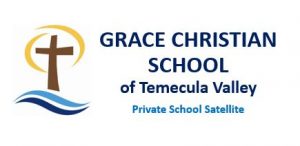** CLICK HERE TO FIND OUT THE DIFFERENCES BETWEEN
GRACE HOMESCHOOL PSP & GRACE HOMESCHOOL CLASSES **
ANSWERING FREQUENTLY ASKED QUESTIONS ABOUT SCHOOLING YOUR CHILD:
In California, children between six and eighteen years of age are subject to compulsory full-time education (Education Code [EC] Section 48200). That means that every school-age child must be enrolled in and their student records kept by means of one of the following choices for schooling:
Public Education
Private Education
Home Education
PUBLIC & PRIVATE SCHOOLS
Public Schools:
- Learning institutions that are “free” and funded by local, state and/or federal governments (your tax dollars). They offer general education opportunities to children in kindergarten through grade 12.Public schools must accept every child in its district, but this doesn’t mean your child will get into the school of your choice.
- Must follow state guidelines and curriculum standards on what is taught and how children are evaluated.
Public Charter Schools:
- Charter schools are independently-operated public schools that have the freedom to design classrooms that meet their students’ needs.
- All charter schools operate under a contract with a charter school authorizer – usually a nonprofit organization, government agency, or university –outlined in their “charter” and are accountable to that governing body.
- Children who are enrolled in a charter school are still part of the public school system, and are part of their school district; public charter schools are “free” and receive funding from a government body (your tax dollars), and all approved school activities, classes, curriculum is paid for by the government.
- Some charter schools offer onsite classes, or students may study independently at home, all according to their charter.
- Must follow state guidelines and curriculum standards on what is taught and how children are evaluated.
Private Schools (Christian or Secular)
- These are traditional on-campus institutions that depend on their own funding, which may come from parents through tuition, grants, donations, and endowments.
- Private schools are free to offer religious education, or curriculum not regulated by state standards.
- Tuition can be expensive.
- Curriculum, activities, and sports, etc., are paid for by the parents.
CHOOSING TO HOMESCHOOL
If you choose home education for your child, you must still enroll them in some type of “school” in the eyes of the state of California. Every child who is homeschooling must be part of a “private school” – not an on-campus private school like mentioned above – but either in their own private school where you file a private school affidavit with the State or join a Private Satellite Program (PSP).
Your Own Private School
- Families that plan to educate their children at home on their own without outside help or interference can file an affidavit with the State of California showing they are schooling their children at home.
- State considers your school to be a “private school” and you can choose a name for your school when you file.
- Parents are the teachers and their children are the students of their homeschool “school.”
- Parent is free to choose and buy curriculum.
- Keep your own records, attendance, etc.; do your own report cards, graduation, diploma, etc.
- Follow State for graduation credits/requirements, especially if child plans to attend college.
Private School Satellite Program (PSP)
- A PSP is an organized group of home-educating families who file one affidavit (a state of California private school certificate) on behalf of all its members.
- All the families enrolled are part of this “private school” and the parents are considered the teachers and the children are the students of this satellite school.
- Administrator will remind you to turn in the required records and course of study.
- Each family is in control of their children’s educational program by selecting their own methods, materials and, curriculum.
- PSP offers support with educational planning, curriculum suggestions and counseling, and record-keeping.
- PSP holds each student’s cumulative file including attendance records, summary of courses, progress reports and report cards, copy of health records, and HS transcripts. PSP holds student records until withdrawal and enrollment in another school or upon graduation.
- Many PSP offer group activities and field trips for enrolled families to attend if they desire.
GRACE CHRISTIAN SCHOOL OF TEMECULA VALLEY IS A PSP!
